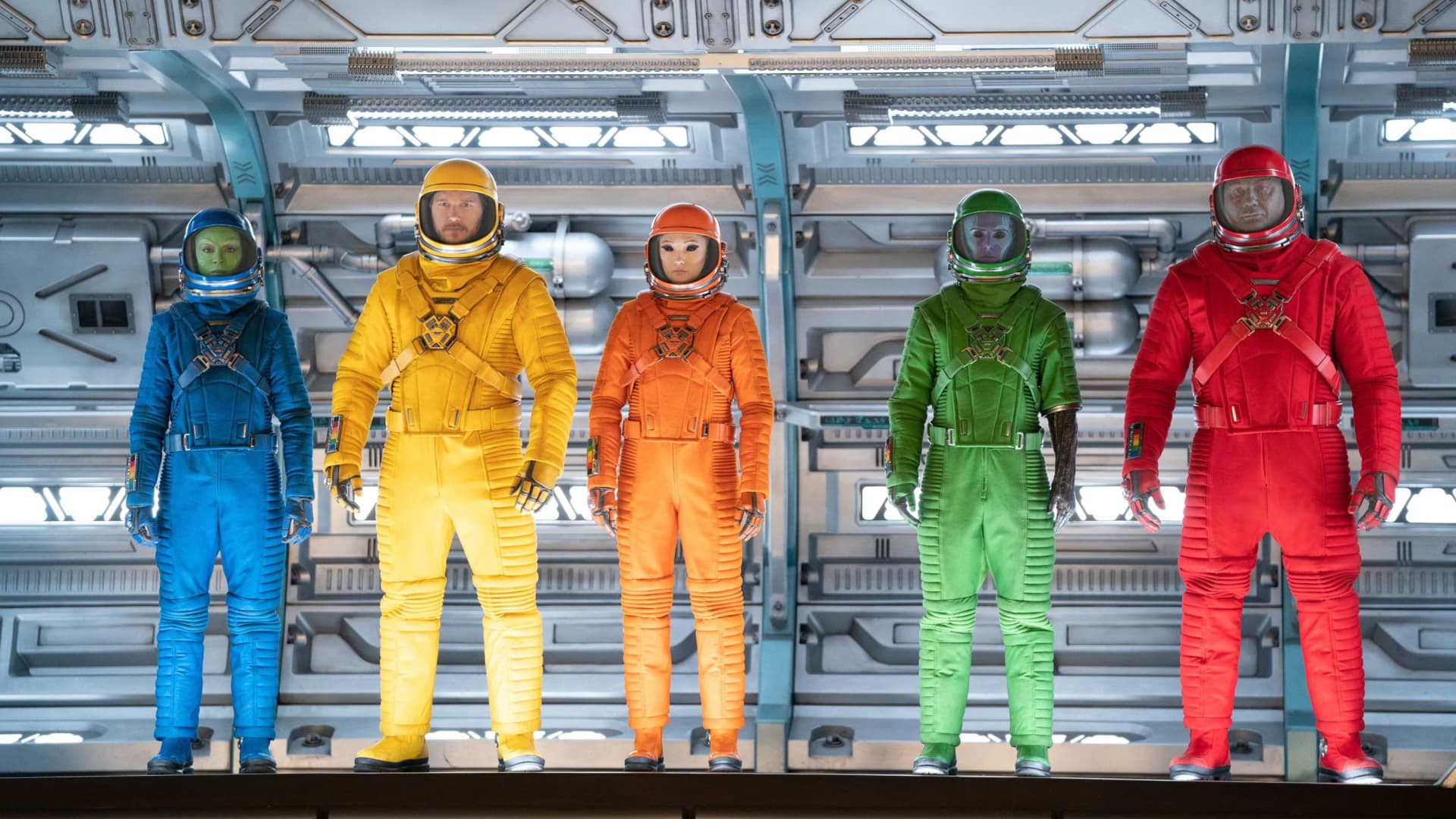Did someone say superhero fatigue? Not with James Gunn at the helm.
In its second week in theaters, the director’s “Guardians of the Galaxy: Vol. 3” proved that audiences are still willing to venture out to see costumed heroes on the big screen. Most blockbuster films’ ticket sales drop between 50% and 70% from the opening weekend to the second week. Gunn’s third tale about the Guardians of the Galaxy only dropped 47.6%, indicating that even casual fans think it’s a must-see movie.
related investing news


This is the smallest second week drop for a Marvel Cinematic Universe film since 2018’s “Black Panther,” which dropped just 44.7%, according to data from Comscore. It is the third-best second week fall of any MCU film since 2008, just behind “Thor,” which slipped 47.2% during its second week in 2011.
“Guardians of the Galaxy: Vol. 3” added $62 million in ticket sales domestically over Friday, Saturday and Sunday, bringing its total domestic haul to $214.7 million. Globally, the film has generated just under $530 million at the box office.
For comparison, the first “Guardians of the Galaxy” film tallied $773.3 million globally during its run in 2014 and “Guardians of the Galaxy: Vol. 2” scored $863.6 million during its run in 2017.
The strong box office for “Guardians of the Galaxy: Vol. 3” seems to quell fears about superhero fatigue at the box office, something even Disney CEO Bob Iger has worried about publicly. The executive has openly questioned whether Marvel should continue creating third and fourth films for established legacy characters, rather than exploring new heroes, antiheroes and villains.
His comments, which were delivered in March during the Morgan Stanley Technology, Media and Telecom Conference, came on the heels of the disappointing box-office performance of “Ant-Man and the Wasp in Quantumania” and “Thor: Love and Thunder.”
The third “Ant-Man” saw a 69.8% drop from its first week to its second, the largest fall of any MCU film. Meanwhile, the fourth “Thor” standalone saw a 67.6% drop, the third-highest of any film in the MCU, Comscore data show. 2021’s “Black Widow” holds the second-steepest drop with 67.8%, partially because the film was released in the middle of the pandemic and partially because it was delivered to theaters and Disney+ on the same day.
Second week numbers are sometimes more important than the opening weekend data. Showbiz analysts often look to this drop as an indicator of whether a film will have longevity at the box office or will fizzle quickly.
“It’s a win for Disney, Marvel, James Gunn, theaters and audiences across the board for such an important 2023 tentpole to showcase the power of quality blockbuster cinema and why opening weekends don’t always tell the full story,” said Shawn Robbins, chief analyst at BoxOffice.com.
Major tentpole features from Disney’s Marvel Cinematic Universe often see box-office ticket sales fall more than 50% after reaching sky-high opening weekend numbers. While those kinds of films can continue on toward billion-dollar or higher theatrical runs, this metric can indicate whether word-of-mouth is bringing new audiences to theaters or whether interest is waning.
“As a pure reflection of positive audience sentiment for a film, nothing says a movie is resonating strongly with audiences like a modest second weekend drop,” said Paul Dergarabedian, senior media analyst at Comscore.
The release of Marvel’s “Guardians of the Galaxy Vol. 3” also marks the symbolic end of Gunn’s time with one comic book studio and the start of his reign at another. Gunn, alongside producer Peter Safran, was named co-CEO of Warner Bros. Discovery‘s DC Studios last year.
Because of this, the success of Marvel’s “Guardians of the Galaxy Vol. 3” actually bodes well for the future of DC. It shows that Gunn has his finger on the pulse, and has the potential to deliver similar results at his new studio.
Of course, Gunn has already dipped a toe into the DC universe with 2021’s “The Suicide Squad.” The movie generated less than $200 million globally, as it was released simultaneously on HBO Max and in theaters during the thick of the pandemic, but was well-received by both critics and audiences.
Gunn and Safran have developed a 10-year plan to reinvigorate its franchises across TV and film, including fresh spins on Superman and Batman. Gunn himself will write and direct “Superman: Legacy.”


